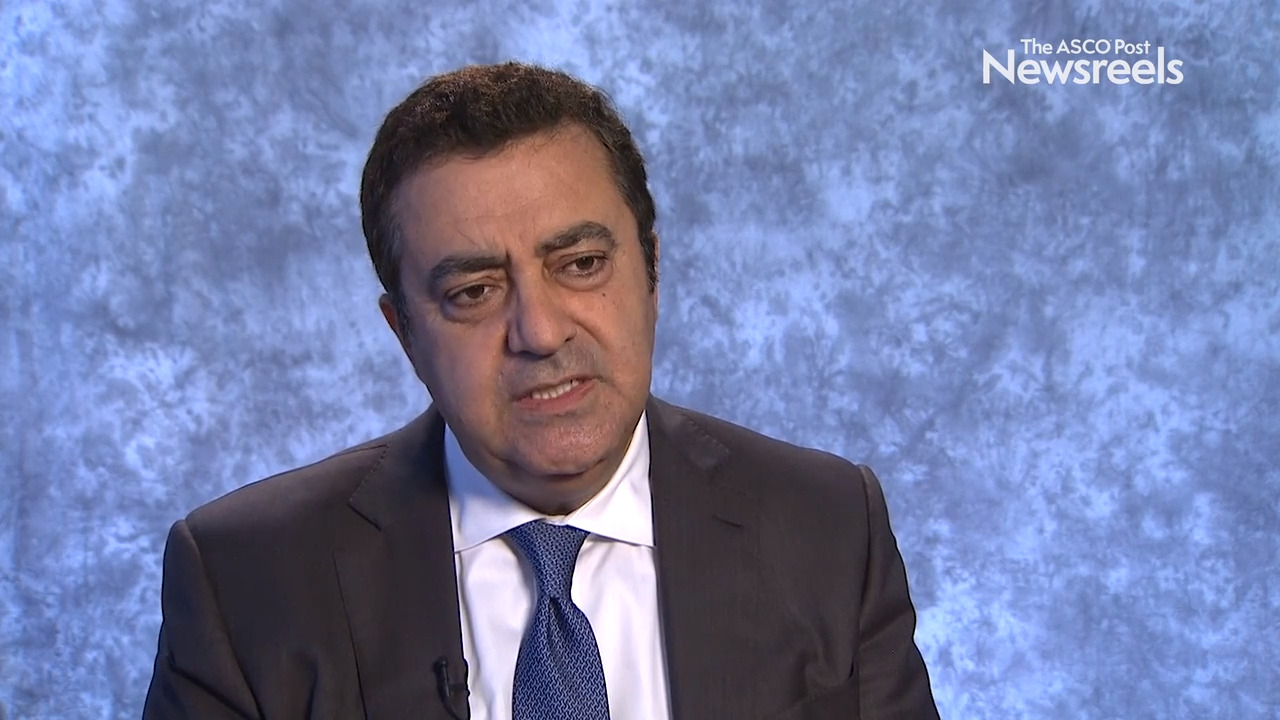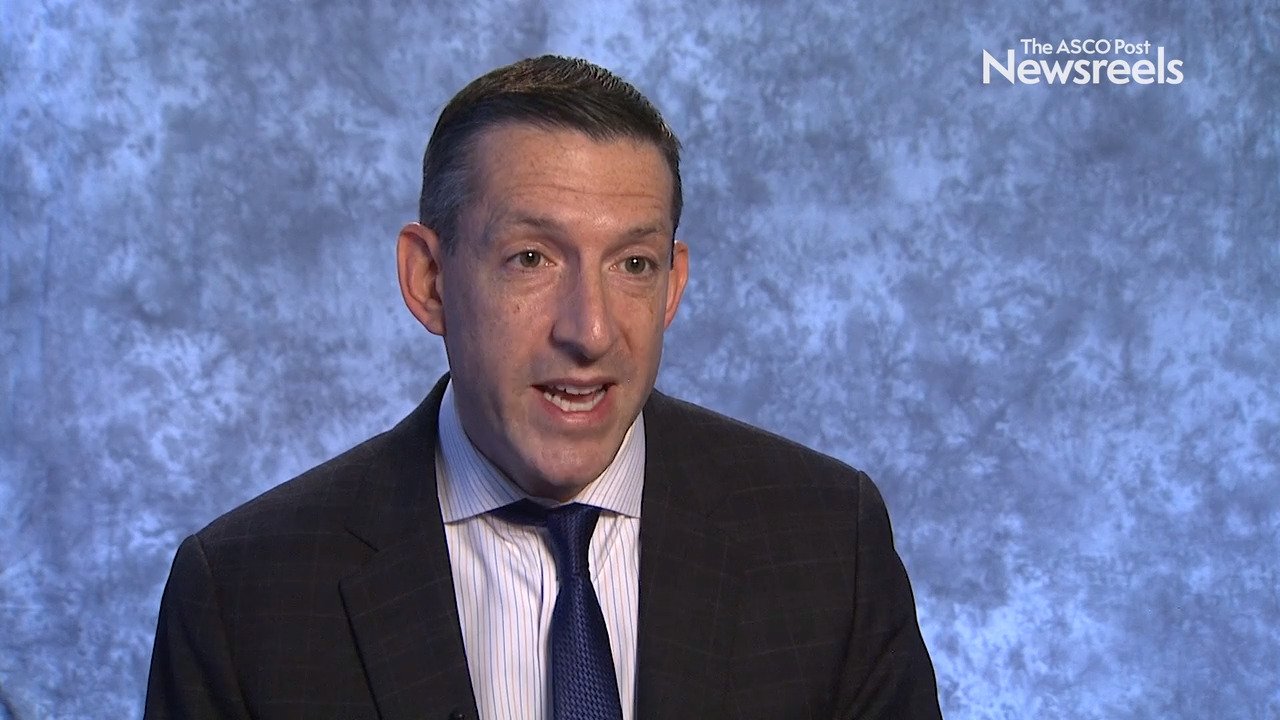Norman E. Sharpless, MD: Director of the National Cancer Institute: Articulating a Vision
2018 ASH Annual Meeting & Exposition
Norman E. Sharpless, MD, Director of the National Cancer Institute, discusses his vision for the NCI in four key areas––big data, clinical trials, workforce development, and basic science––and how this vision affects the hematology community.
Paul Richardson, MD, of Dana-Farber Cancer Institute, discusses updated results and the first report on progression-free survival for melflufen therapy administered to people with multiple myeloma that is refractory to daratumumab and/or pomalidomide (Abstract 600).
Alok A. Khorana, MD, of the Cleveland Clinic, discusses study findings on rivaroxaban thromboprophylaxis in high-risk ambulatory patients, which showed a reduction in venous thromboembolism and related death (Abstract LBA1).
Anas Younes, MD, of Memorial Sloan Kettering Cancer Center, discusses trial findings on ibrutinib plus rituximab, cyclophosphamide, doxorubicin, vincristine, and prednisone in people with previously untreated non–germinal center B-cell–like diffuse large B-cell lymphoma (Abstract 784).
Mikkael A. Sekeres, MD, of the Cleveland Clinic, discusses phase III study findings on luspatercept to treat anemia in patients with very low-, low-, or intermediate-risk myelodysplastic syndromes with ring sideroblasts who require red blood cell transfusions (Abstract 1).
Shaji K. Kumar, MD, of the Mayo Clinic, discusses phase III findings on daratumumab plus lenalidomide and dexamethasone vs lenalidomide and dexamethasone in people with newly diagnosed multiple myeloma who are ineligible for transplant (Abstract LBA2).





